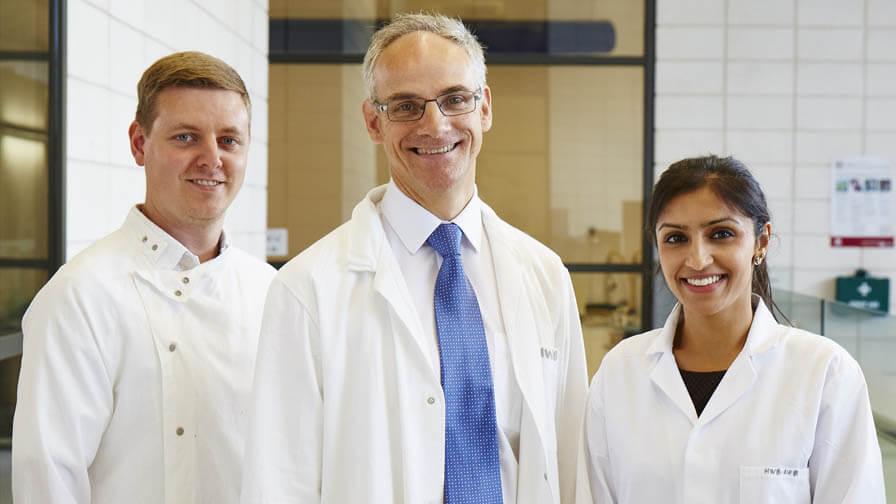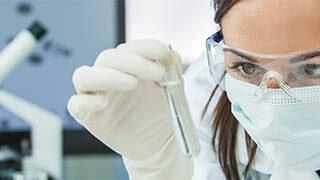
Every year in the UK, around 400 children are diagnosed with brain cancer. Many face prolonged and gruelling treatment with surgery, chemotherapy or radiotherapy. While treatment can prove life-saving, it can also cause serious, long-term side effects.
Jointly funded by Action Medical Research and The Brain Tumour Charity, Professor Andrew Peet and his team at the University of Birmingham have found that levels of lipids and glutamine, biological substances in the brain, are direct indicators of how aggressive a tumour would be. Knowing the aggressiveness of the tumour can help doctors decide what the best course of treatment is for each child.
Using an MRI scanner, the levels of lipid and glutamine can be measured with more accuracy than is currently being done in routine practice. This non-invasive approach specifically benefits young patients with brain tumours in high-risk areas, such as the brain stem, who may not ordinarily undergo a biopsy due to the tumour’s sensitive location. It will also enable clinicians to have a more accurate understanding of each tumour’s aggressiveness and to tailor treatments accordingly, so that they are only as toxic as they need to be.
Professor Peet believes this is a huge step towards introducing a more personalised treatment for children with brain tumours and could save the lives of children with the most aggressive tumours and spare those with less severe illness from unnecessary treatments.

